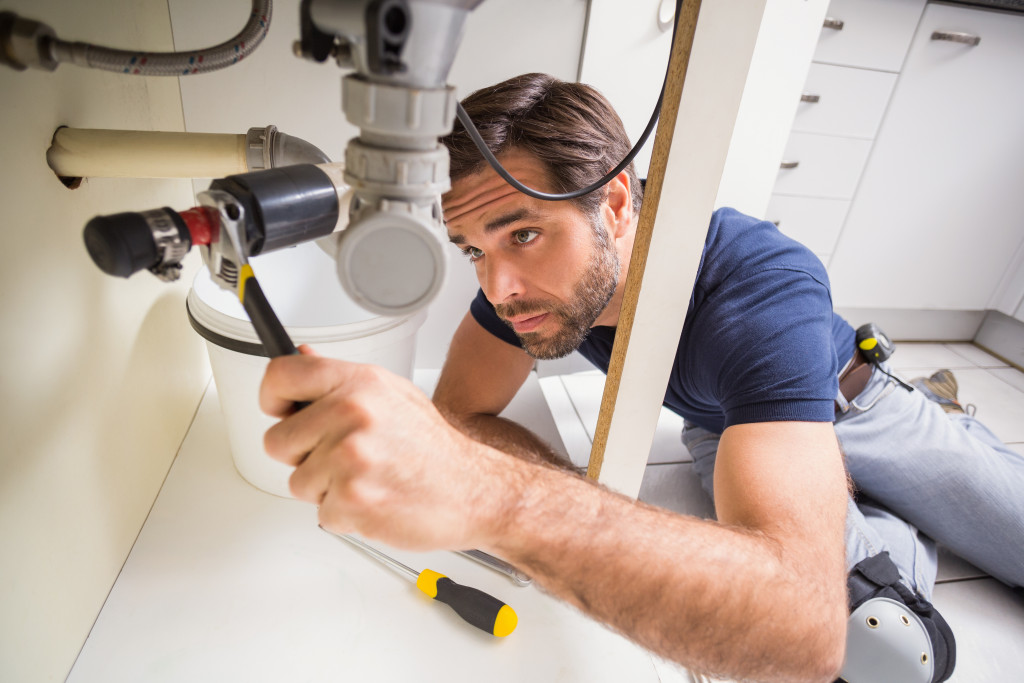- Plumbing certification is a formal recognition of expertise in the field.
- Requirements for certification include education and hands-on experience.
- The journey to becoming certified involves formal education, apprenticeship, and exams.
- Hands-on experience through apprenticeship is crucial for honing skills.
- Preparation for the certification exam is vital, including practical revision.
If you’re considering a career in plumbing, you’re on the brink of entering a field where skill and precision are highly valued. Becoming a professional plumber is not just about learning to fix pipes and install fixtures; it’s about gaining a certification that speaks to your expertise and commitment. In this guide, we’ll walk you through the steps to earn your plumbing certification, empowering you to turn your interest into a thriving career.
Understanding the Basics of Plumbing Certification
Before you dive into the world of professional plumbing, it’s crucial to understand what it means to be certified. Plumbing certification is more than just a piece of paper; it’s your ticket to higher job prospects, better pay, and recognition as a skilled professional. It demonstrates to employers and clients that you have the knowledge and skills to meet industry standards.
What is Plumbing Certification?
Plumbing certification is a formal recognition by professional bodies that you have achieved a certain level of expertise in the field of plumbing. It means you have undergone the necessary training, passed exams, and met all the standards set by the industry. This certification not only boosts your credibility but also ensures that you are updated with the latest plumbing technologies and safety protocols.
Key Requirements for Certification
The road to certification begins with understanding its requirements. Typically, you’ll need a combination of formal education and hands-on experience. This might include completing a vocational training program in plumbing or a related field and an apprenticeship under experienced plumbers. The apprenticeship is a critical component, as it gives you real-world experience and practical skills that are indispensable in this trade.
The Journey to Becoming a Certified Plumber

Embarking on your journey to become a certified plumber is an exciting step. This path is not just about acquiring skills; it’s about shaping a career that can grow and evolve over time. In this section, you’ll learn about the educational paths available and the significance of hands-on experience in your journey.
Educational Pathways
Your educational journey is the foundation of your plumbing career. You have several options: enrolling in vocational schools, attending community college programs, or even online courses tailored for plumbing.
These programs typically cover key topics like water supply, waste systems, piping, and basic installation techniques. Choose a program that best fits your learning style and career goals, but make sure the relevant professional plumbing bodies recognize it.
Gaining Hands-On Experience
While your formal education provides theoretical knowledge, the hands-on experience truly hones your skills. This is where an apprenticeship becomes invaluable. Working under experienced plumbers, you’ll learn the nuances of the trade that aren’t covered in textbooks.
From managing real-life plumbing emergencies to understanding customer service, these experiences are integral to your growth as a plumber. Typically, an apprenticeship lasts between 2 to 5 years, depending on your pace and the complexity of skills you acquire.
Finalizing Your Professional Status
You’re now approaching the final stretch of your journey to becoming a certified plumber. This phase is about consolidating your knowledge and experience and demonstrating your proficiency through certification exams. It also includes a crucial step for many aspiring plumbers: obtaining a CSCS plumber card.
Preparing for the Certification Exam

Preparing for your certification exam is a critical step. This exam tests your knowledge and skills in plumbing, ensuring you’re ready to handle the responsibilities of a professional plumber. To prepare, review your course materials and study guides, and consider joining study groups.
Practical revision, where you apply your knowledge in real or simulated scenarios, can also be immensely beneficial. Remember, this exam is not just a test but a milestone in your professional journey.
Specific Requirements
In some countries, there are additional requirements to obtain a certification card. For example, in the UK, those who wants to start a plumbing career must obtain a CSCS (Construction Skills Certification Scheme) plumber card, which requires you to pass the Health, Safety, and Environment test. Getting a CSCS plumber card is an essential requirement for those who want to work on construction sites. Make sure you’re knowledgeable about any specific requirements in your region.
The Bottomline
Following the steps outlined in this guide, you’re well on your way to earning your plumbing certification. Each step is a building block in your career, from understanding the basics to gaining hands-on experience and preparing for your certification exam. With dedication and hard work, you’ll achieve certification and establish yourself as a skilled and trusted professional in the world of plumbing.
